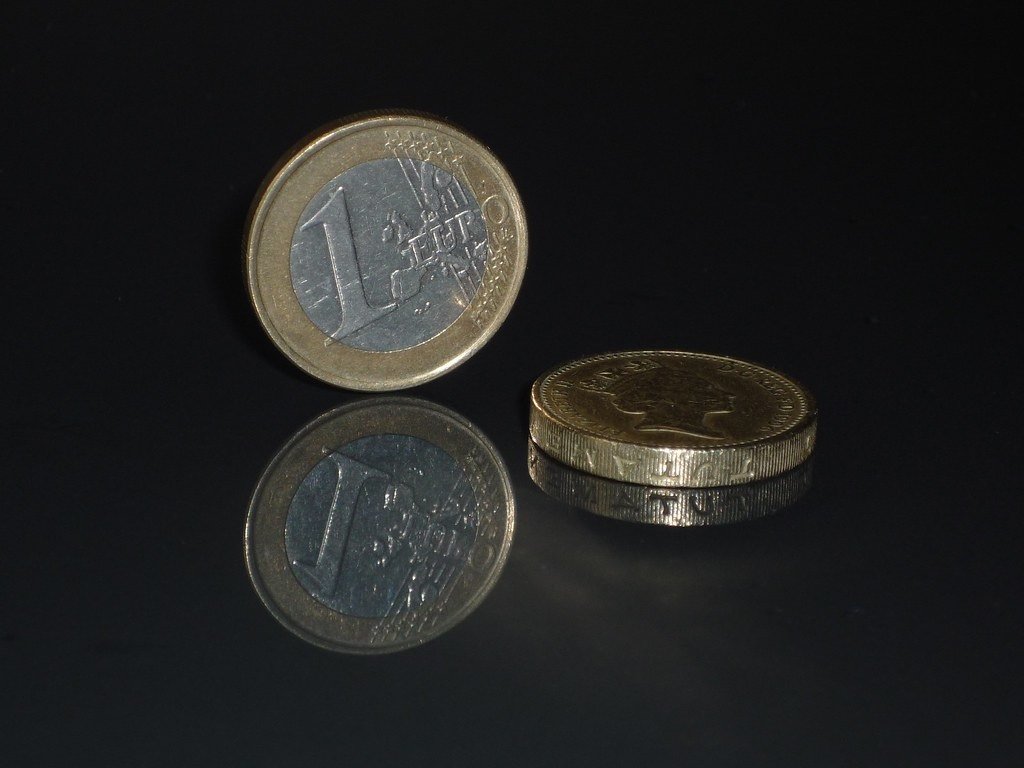With the British economy seeming to go like gangbusters – UK GDP is expected to rise by 7.2 per cent in 2021, according to the OECD, 265 per cent job growth expected in the three months to May 2021 – one would think that sterling would exhibit some strength.
Instead, the pound has been falling sharply against the euro and the dollar, and analysts expect it to continue to sink.
The pound is at 1.16 to the euro, and at 1.39 to the dollar, and each is down by more than 2 per cent.
Given that the dollar is in a phase of steady decline, it’s hard to see why the pound is struggling.
The reason is because the powers that be in the UK economy don’t think the economy is as strong as many people say. The Bank of England is among these skeptics, and it not only held its near-zero rates again on Thursday, but also displayed concerns about the state of the British economy in the statement released that day.
Ahead of the BoE’s monetary policy announcement on Thursday, nearly all professional investors expected some strong comment about fighting inflation and controlling burgeoning growth – a comment of the type that the US Federal Reserve made at its last policy announcement.
However, a completely different view emerged.
“The view of the Monetary Policy Committee was that the members needed ‘a somewhat longer period of time’ and at least until the coronavirus furlough scheme finishes at the end of September before taking any judgment on the strength of the recovery and the rise in inflation.”
Analysts took the same view. “The British pound was sold in the wake of the June Bank of England decision that signalled little fundamental change in direction in UK monetary policy,” write analysts at Pound Sterling Live.
The Bank of England (BoE) upgraded their GDP growth and inflation forecasts but offered little tangible evidence policy makers were itching to hike interest rates, and this apparently disappointed some participants in the currency market that were looking for a ‘hawkish’ shift.”
Inflation is, after all, close to 3 per cent in the UK, well above the BOE targets.
Everyone was expecting some sign on when to expect a rate hike, but the committee at BoE is keeping its powder dry.
“The MPC’s central expectation is that the economy will experience a temporary period of strong GDP growth and above-target CPI inflation, after which growth and inflation will fall back.
“The position that inflation will likely prove transitory and the lack of any shift in the guidance on asset purchases deflated the mild buildup of hawkish expectations and took sterling back lower in the wake of the meeting, as it is clear we’ll need to wait for more incoming data to get a more notable adjustment in the bank’s guidance,” says John Hardy, Head of FX Strategy at Saxo Bank.
But it’s not just the BoE position that worries GBP bears.
“Brexit is still acting as a drag on the pound, with relations between the UK and EU still tense and ongoing disputes about customs controls between Northern Ireland and the Republic of Ireland,” warn analysts at Capital Economics.
Certainly analysts don’t deny the good news that has been coming out of the UK. But there is caution around future prospects, and this is fuelled by a feeling among some analysts that good news has already been priced in. Uncertainty over the Bank of England’s interest rate policy and when the US Federal Reserve will move to tighten its policy are also playing their part.”
One has to add to all this the dangers posed by the new variant of Covid-19 that is keeping restrictions in place in the UK. And there is the extension of lockdown, with ‘Freedom Day’ ever farther off.
Graeme Smith, the managing director of AlixPartners, explains:
“Any businesses will have reopened in anticipation of restrictions falling away on 21 June, and likely forecast and accepted suppressed trade for the period up to that point. While far from ideal, knowing that ‘Freedom Day’ was on the horizon meant operators could battle through this challenging time, perhaps welcoming team members back to the business in anticipation and getting operations up to speed. A further delay of four weeks is a devastating blow, creating significant uncertainty and further financial strain.’
The euro, in the same period has received some significant support. The euro was supported by both German and French business confidence hitting high levels in June. German business confidence climbed to the strongest in more than two years. In France, the index of business confidence hit its highest point since 2007. As covid numbers declined and restrictions eased economic confidence has risen, and the Banque de France predicts the French economy will be back to pre-crisis levels by early next year.
Awaiting more heartening UK economic data, investors must simply grit their teeth and bear it. The great UK adventure into Brexit has clouded the country’s economic future, and whether it will emerge from the clouds remains to be seen.






Click here to change your cookie preferences